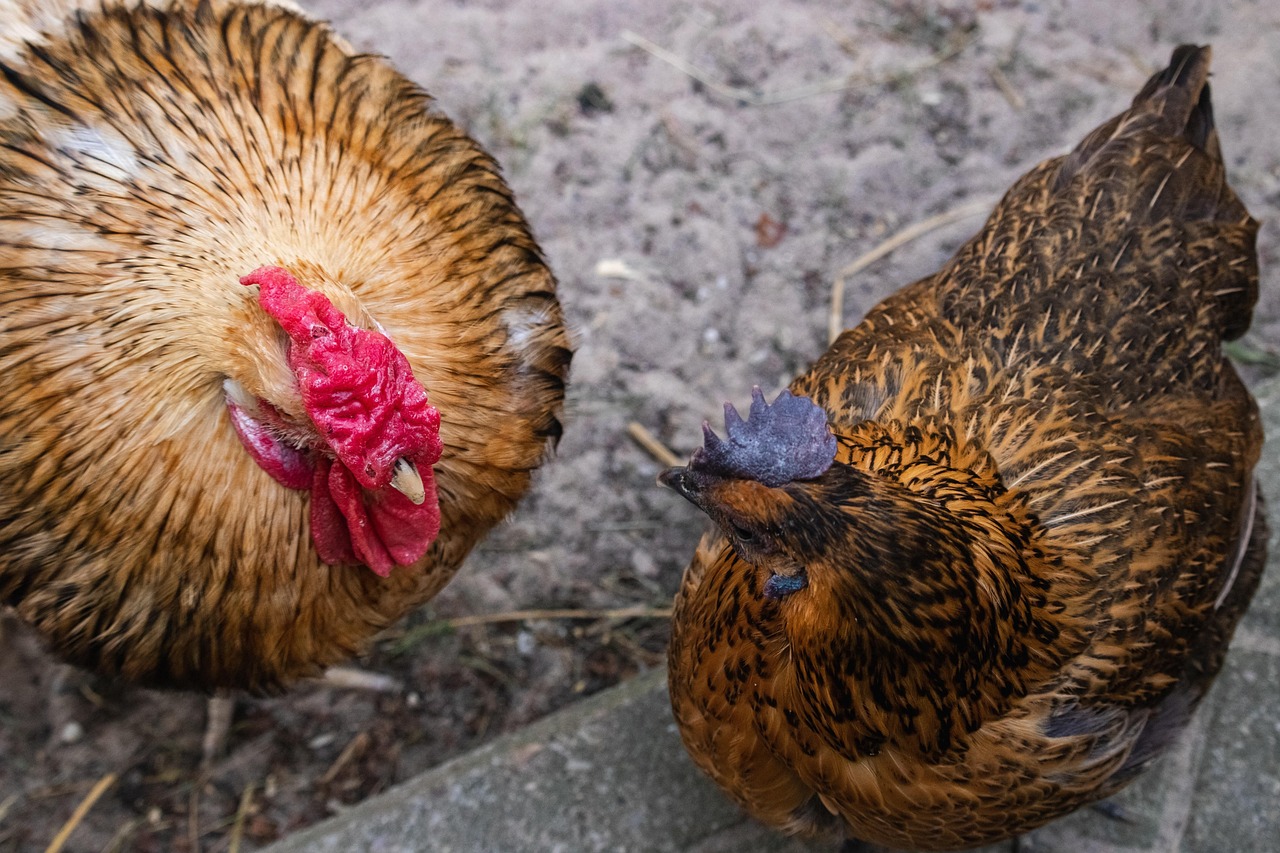Introduction to Chicken Lifespan
Chickens are more than just egg-laying backyard companions—they’re fascinating creatures with surprisingly variable lifespans. If you’ve ever wondered, “How long do chickens live?” the answer isn’t as straightforward as it seems. Their longevity depends on multiple factors such as breed, environment, and care.
This article uncovers 7 fascinating facts about a chicken’s lifespan and how you can ensure your feathery flock lives a long, healthy, and productive life.
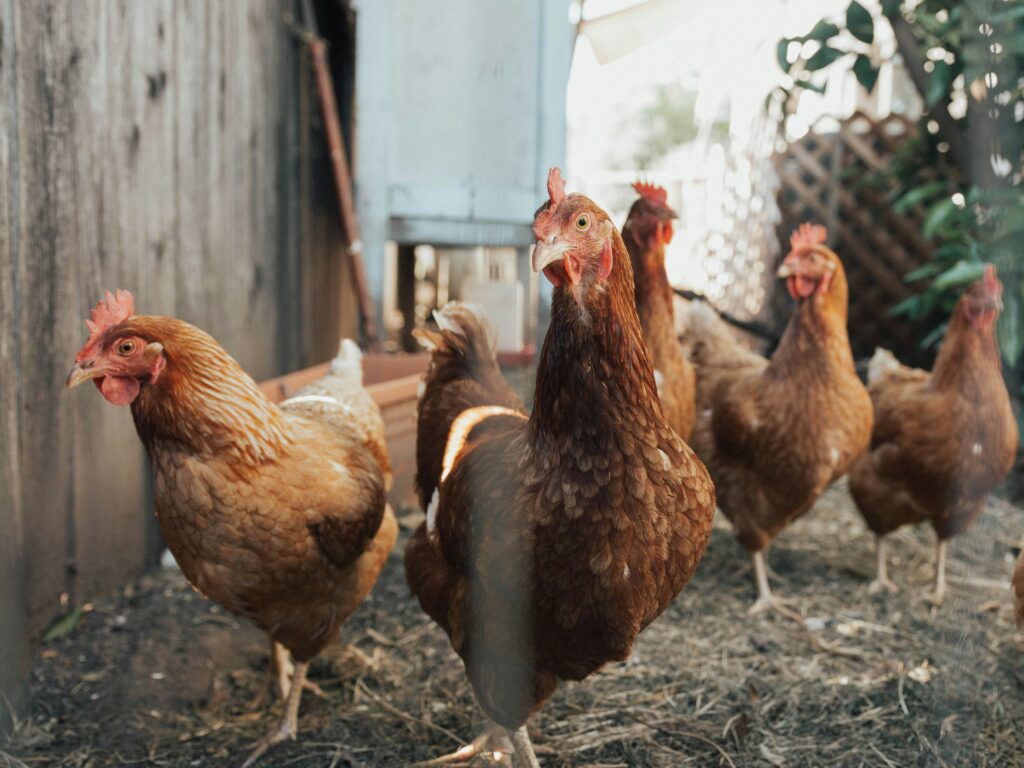
Photo by Ben Moreland on Unsplash
Average Lifespan of a Chicken
Chickens, depending on their breed and lifestyle, can live anywhere between 3 to 10 years. However, this range shifts based on several key factors.
Lifespan of Backyard Chickens
Well-cared-for backyard chickens often live between 6 to 10 years. These birds benefit from a safer environment, regular nutrition, and occasional vet checkups. Some owners even report chickens living up to 15 years, although that’s quite rare.
Lifespan of Wild Chickens
Feral chickens—like those on the Hawaiian island of Kauai—face threats like predators, limited food, and diseases. As a result, they usually survive for only 1 to 3 years in the wild.
Lifespan of Commercial Chickens
Chickens raised for meat or egg production in factory farms typically have the shortest lifespans. Broilers (meat chickens) are often processed at just 6 to 8 weeks, while laying hens are usually culled at 18 to 24 months when their egg production declines.
Factors That Affect Chicken Lifespan
Several variables influence how long a chicken lives, including genetics, care, and surroundings.
Genetics and Breed
Different breeds age differently. Hybrid breeds bred for rapid growth may have shorter lives due to stress on internal organs. On the other hand, heritage breeds are naturally longer-living.
Living Environment
Chickens thrive in clean, dry, and predator-proof coops. Exposure to damp conditions or overcrowding can reduce their lifespan significantly.
Nutrition and Diet
A balanced diet rich in proteins, grains, and greens is essential. Deficiencies can lead to poor immunity and early death.
Predator Exposure and Protection
Predators like raccoons, hawks, and foxes pose major threats. Secure housing, especially at night, dramatically increases survival.
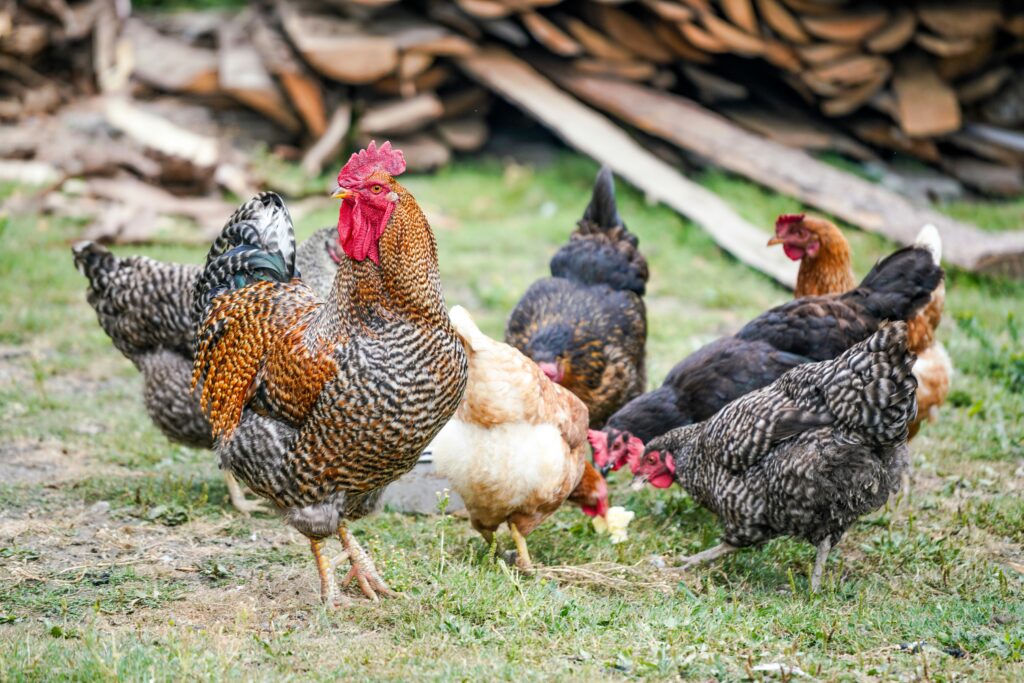
Photo by Zosia Szopka on Unsplash
Popular Chicken Breeds and Their Lifespans
Here’s a breakdown of common breeds and how long they generally live:
| Breed | Average Lifespan |
| Rhode Island Red | 8–10 years |
| Leghorn | 4–6 years |
| Silkie | 7–9 years |
| Plymouth Rock | 8–10 years |
Rhode Island Red
This dual-purpose breed is known for hardiness and can live up to 10 years with proper care.
Leghorn
Efficient layers but more nervous in temperament, these chickens typically live 4–6 years.
Silkie
Loved for their calm demeanor and unique fluff, Silkies often reach 7 to 9 years.
Plymouth Rock
These friendly birds are resilient and long-lived, often reaching 8–10 years.
How to Increase Your Chicken’s Lifespan
If you’re invested in your flock, here are ways to help your chickens reach a ripe old age:
Clean Living Conditions
Maintain coop hygiene with weekly cleanings and monthly deep-cleans. This prevents parasites and respiratory issues.
Proper Vaccinations and Healthcare
Vaccinate against Marek’s disease, Newcastle, and other region-specific diseases. Regular checkups and deworming are recommended.
Balanced Feed and Fresh Water
Provide layer pellets, grit, oyster shells (for calcium), and fresh water daily. Consider supplements like garlic or apple cider vinegar for immune support.
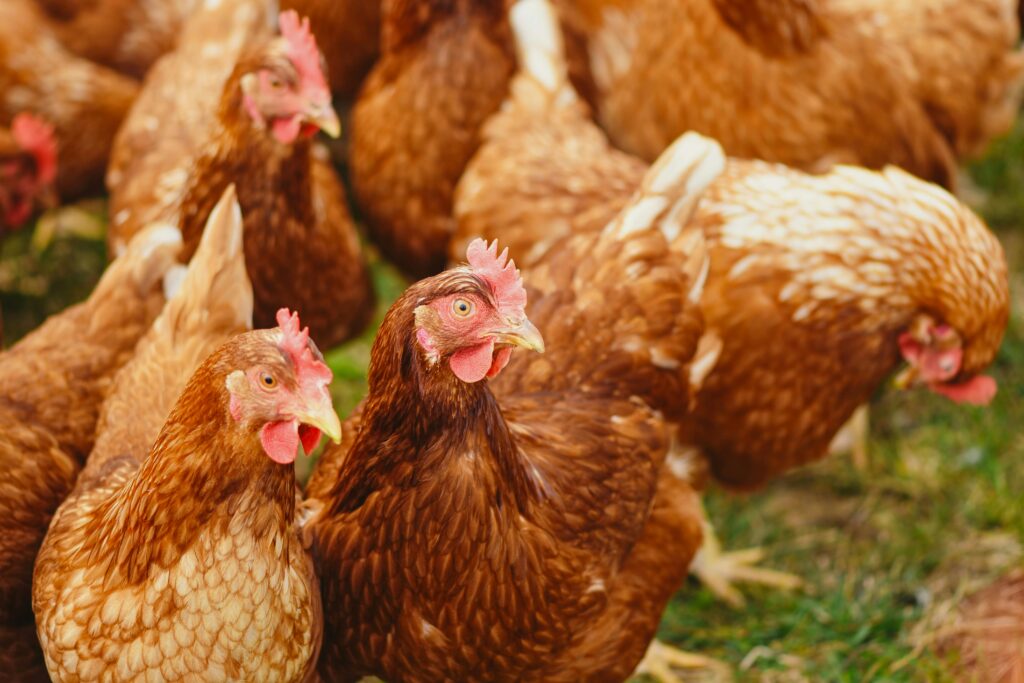
Photo by Alexas Fotos
Common Health Issues in Chickens
Knowing what to look for can mean the difference between early intervention and loss.
Respiratory Problems
Signs include coughing, sneezing, nasal discharge, or gurgling sounds. Often caused by poor ventilation or dusty bedding.
Parasites and Mites
External parasites like lice and mites can shorten lifespan. Inspect feathers and use diatomaceous earth or medicated dusting powder regularly.
Egg Binding
When a hen can’t lay an egg, it becomes life-threatening. Signs include lethargy and straining—treat with warm baths and calcium.
The Role of Molting in a Chicken’s Life
Molting is a natural, annual process where chickens lose and regrow feathers. Though they may look unhealthy, it’s not life-threatening. Nutrition is vital during this period to aid feather regrowth.
Signs Your Chicken Is Aging
Older chickens slow down. You’ll notice:
- Reduced egg production
- Duller combs and wattles
- Slower movement
- More naps and reduced pecking order interaction
These signs signal it’s time to adjust care and provide more comfort.
When Is It Time to Say Goodbye?
It’s tough, but knowing when to euthanize is part of responsible ownership. If your chicken is in chronic pain, immobile, or not eating—speak to a vet about humane options.
FAQs About Chicken Lifespan
1. How long do chickens live as pets?
Pet chickens, especially if kept indoors or in safe, enriched coops, can live up to 10–15 years.
2. Do roosters live longer than hens?
Generally, hens live longer, as roosters are more aggressive and often fight, leading to injuries.
3. Can chickens live without laying eggs?
Yes! In fact, when hens stop laying, they often live longer due to reduced physical strain.
4. Is it normal for chickens to stop laying as they age?
Yes. Egg production typically drops after 2–3 years, though some still lay sporadically into old age.
5. How do I know if my chicken is sick or just old?
Watch for weight loss, cloudy eyes, wheezing, or discharge. Aging chickens simply slow down without other illness symptoms.
6. What is the oldest recorded age of a chicken?
The oldest known chicken lived 16 years! Her name was Matilda, and she even earned a Guinness World Record.
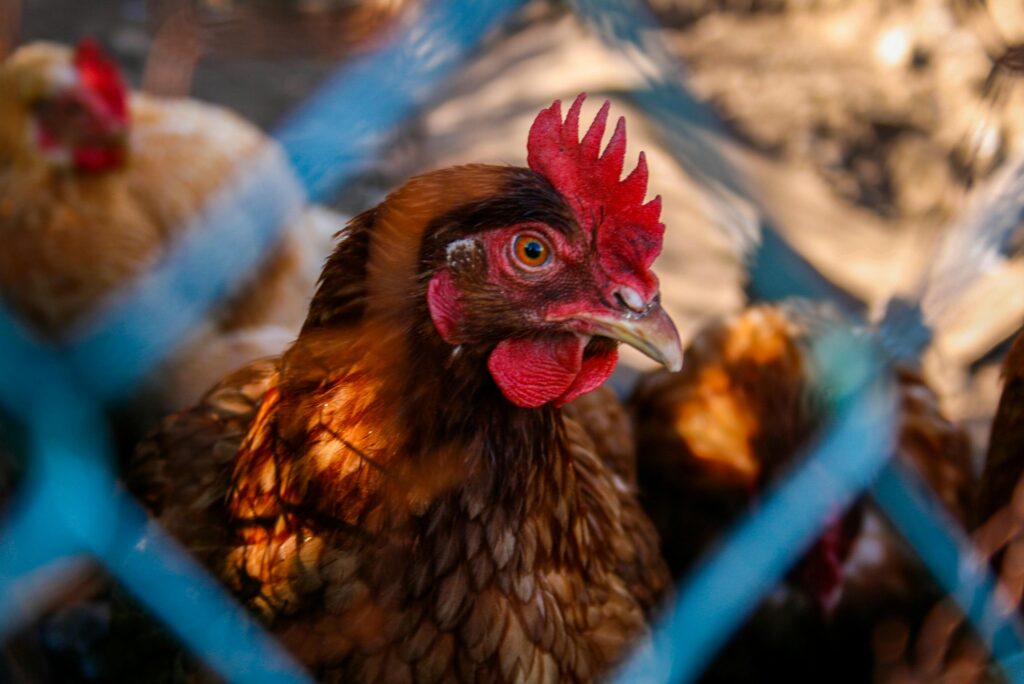
Photo by Daisy
Conclusion
So, how long do chickens live? With attentive care, safe shelter, and proper nutrition, chickens can thrive well beyond their expected lifespans. Whether you’re a homesteader or just raising a few hens for fresh eggs, these birds are worth every effort.
